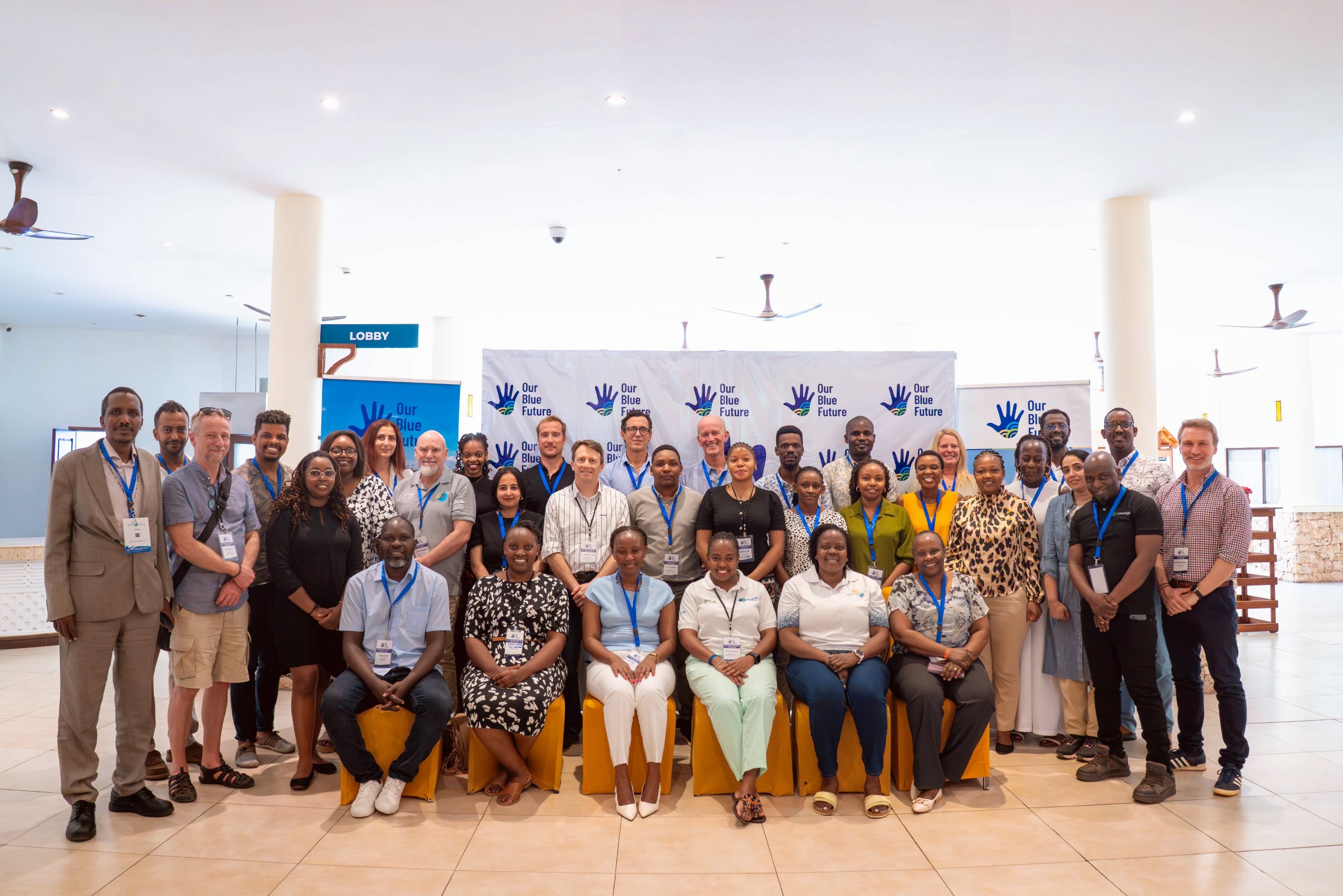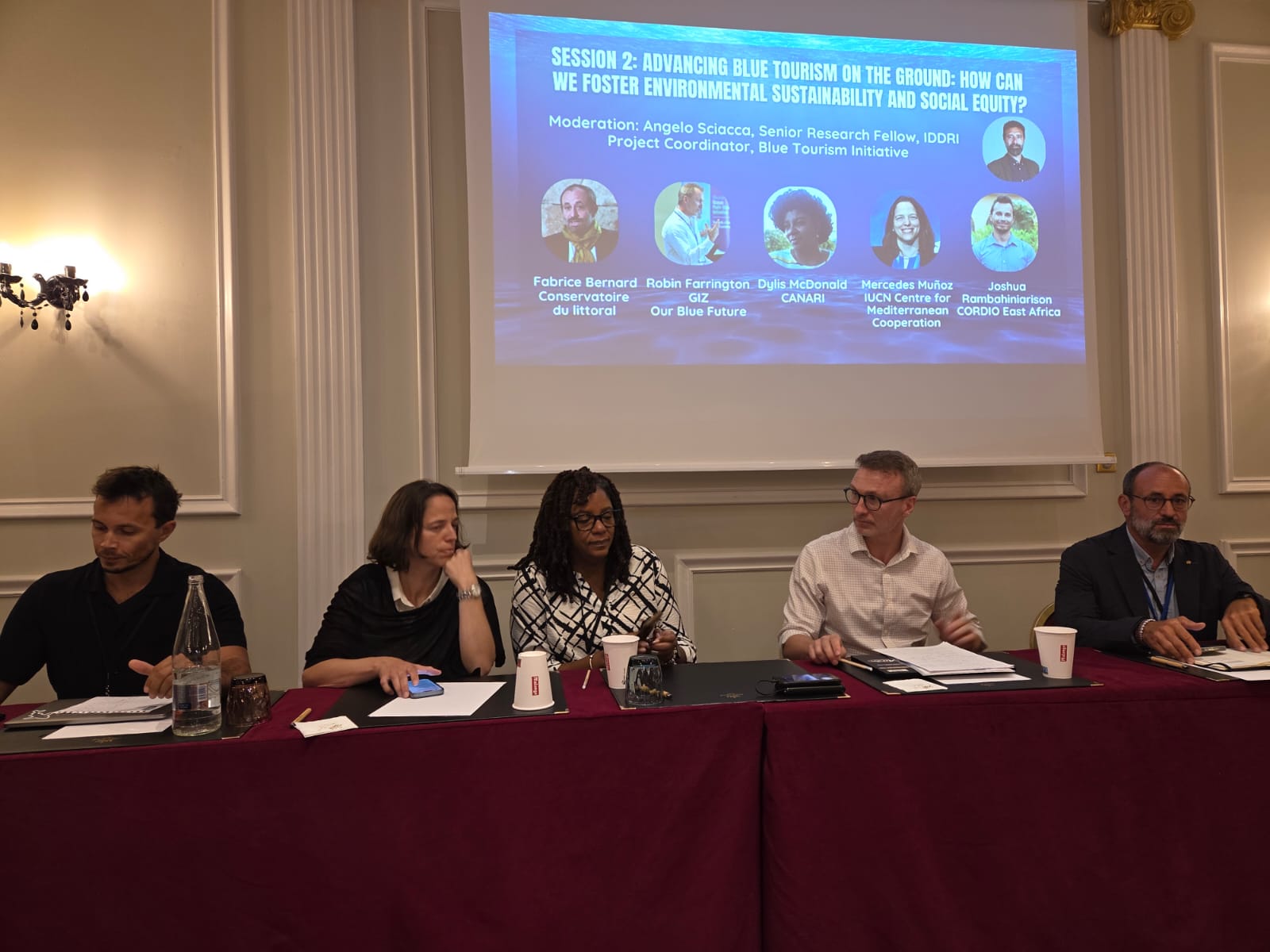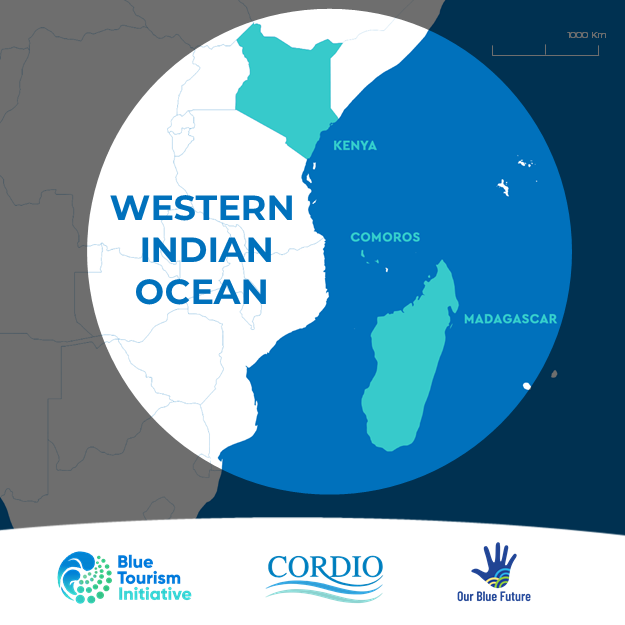The Blue Tourism Innovation Team within the framework of the Blue Tourism Initiative has released a landmark report titled “Sustainable Blue Tourism in the Western Indian Ocean: Trends, Challenges, and Policy Pathways.” Coordinated by CORDIO East Africa, and IDDRI and Eco-union, the report offers a comprehensive analysis of the state of blue tourism across the Western Indian Ocean (WIO) region, reviewing its trends, challenges, and governance landscape. It also outlines strategic policy directions to foster a more sustainable and resilient tourism sector.
Blue tourism is a cornerstone of the WIO’s sustainable blue economy. Globally, coastal tourism represents about 5% of GDP and 7% of total employment. In Africa, the blue tourism sector contributed US$ 80 billion to GDP in 2018, accounting for 3.4% of the continent’s total output and supporting 24 million jobs. Projections by the World Bank indicate that by 2030, this sector could generate US$ 100 billion out of an expected US$ 405 billion global blue economy, positioning blue tourism as a critical driver of future economic growth, if aligned to sustainability.
However, this potential is threatened by unsustainable fishing practices, pollution, poorly managed infrastructure, inadequate management of natural habitats and resources, and weak marine governance. In the WIO, these threats are amplified by fragile ecosystems and the social vulnerability of coastal communities. Climate change, loss of biodiversity, and unregulated tourism development pose further risks to the sustainability and resilience of the sector and of the reliant communities.
In response, the report identifies four key policy pathways for sustainable blue tourism in the WIO:
- Strengthening Regional Cooperation:
Develop a regional tourism strategy aligned with the Regional Ocean Governance Strategy (ROGS) and other relevant frameworks to address shared challenges, promote best practices, and enhance collective resilience through collaboration and innovation. - Driving Sustainable Economic Growth:
Diversify tourism offerings beyond traditional beach and resort models by integrating cultural, ecological, and nature-based tourism. Support local businesses through enabling policies and inclusive planning to reduce seasonality challenges and increase economic stability. - Advancing Social Equity:
Create more inclusive value chains by supporting marginalized groups, expanding targeted training programs, and decentralizing tourism governance to ensure local communities receive fair benefits. - Promoting and Safeguarding Environmental Sustainability:
Foster multi-level and multi-stakeholder collaboration for transparent policy making, better marine governance, build capacity in marine resource management, and implement regional certification programs to ensure sustainability standards are met.
These policy pathways offer a practical framework for improving how blue tourism is managed across the Western Indian Ocean. By aligning tourism development with environmental protection, economic diversification, and social inclusion, countries in the region can strengthen the resilience of coastal communities and ensure the long-term viability of one of their most valuable economic sectors.



